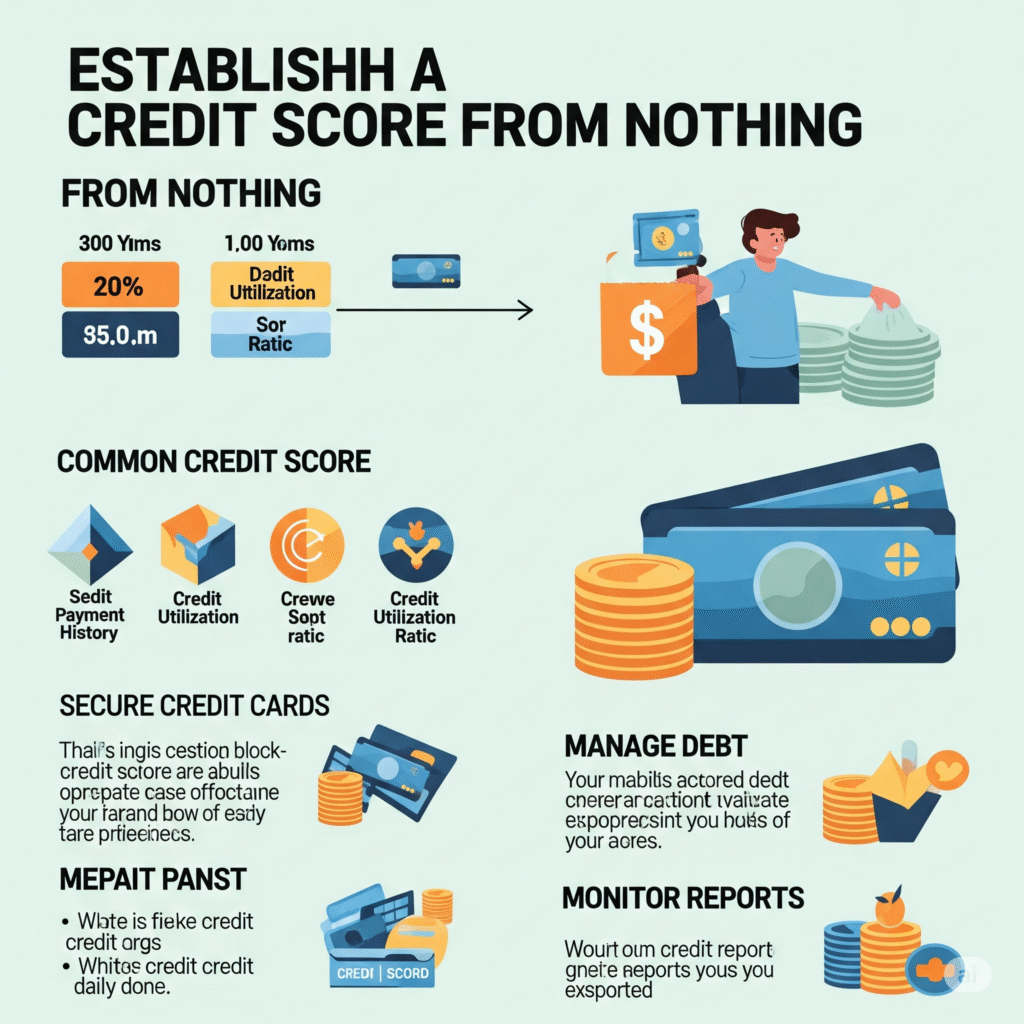Your credit score impacts nearly every major financial decision in your life, from securing a mortgage to getting approved for a car loan or even landing certain jobs. When your credit needs repair, you’re faced with a crucial decision: should you tackle credit repair yourself or hire professional services? This comprehensive guide will help you make an informed decision by examining both approaches in detail.
Understanding Credit Repair Fundamentals
Credit repair involves identifying and addressing negative items on your credit report that may be inaccurate, outdated, or unverifiable. The process typically includes reviewing credit reports from all three major bureaus (Equifax, Experian, and TransUnion), disputing errors, negotiating with creditors, and implementing strategies to improve your overall credit profile.
The Fair Credit Reporting Act (FCRA) gives consumers the right to dispute inaccurate information on their credit reports. Both DIY and professional credit repair services utilize these same legal protections, but they differ significantly in execution, cost, and effectiveness.
DIY Credit Repair: Taking Control of Your Financial Future
The DIY Approach Explained
Do-it-yourself credit repair means personally handling all aspects of the credit repair process. This includes obtaining your credit reports, identifying errors or questionable items, drafting dispute letters, communicating with credit bureaus and creditors, and monitoring your progress over time.
Advantages of DIY Credit Repair
Cost Effectiveness: The most significant advantage of DIY credit repair is cost savings. While professional services can charge $50-$150 monthly, DIY credit repair typically costs only the price of credit monitoring services or individual credit reports, often totaling less than $30 per month.
Complete Control: When you handle credit repair yourself, you maintain complete control over the process. You decide which items to dispute, when to send letters, and how aggressively to pursue certain accounts. This control allows you to prioritize items that matter most to your specific financial goals.
Educational Value: DIY credit repair provides invaluable education about credit systems, consumer rights, and personal finance. This knowledge serves you well beyond the immediate repair process, helping you maintain good credit long-term and avoid future problems.
No Time Restrictions: Unlike professional services that might work on monthly cycles, DIY repair allows you to work at your own pace. You can send disputes immediately upon discovering errors or take time to research the best approach for complex situations.
Direct Communication: When you handle disputes yourself, you communicate directly with creditors and bureaus. This direct relationship can sometimes lead to more favorable outcomes, especially when dealing with local businesses or smaller creditors who appreciate personal communication.
Disadvantages of DIY Credit Repair
Time Investment: Credit repair requires significant time investment. You’ll need to research credit laws, draft letters, track responses, and follow up on disputes. This process can take 10-20 hours monthly, depending on the complexity of your situation.
Learning Curve: Understanding credit laws, bureau procedures, and effective dispute strategies takes time. Mistakes during the learning process can delay results or even harm your credit repair efforts.
Emotional Stress: Dealing with debt collectors, navigating bureaucratic systems, and managing the stress of poor credit can be emotionally draining. Some people find the process overwhelming, leading to inconsistent effort or abandonment of repair attempts.
Limited Resources: Individual consumers lack access to some tools and resources available to professional services, such as specialized software for tracking disputes or established relationships with creditors.
Professional Credit Repair Services: Expert Assistance
How Professional Services Work
Professional credit repair companies handle the entire credit repair process on your behalf. They analyze your credit reports, identify items for dispute, send letters to bureaus and creditors, track responses, and provide ongoing support throughout the process.
Advantages of Professional Services
Expertise and Experience: Professional services employ specialists who understand credit laws, bureau procedures, and effective dispute strategies. Their experience can lead to more successful outcomes and faster results than DIY efforts.
Time Savings: Hiring professionals frees up your time for other priorities. While you focus on work, family, or other responsibilities, experts handle the tedious aspects of credit repair.
Systematic Approach: Professional services use proven systems and software to track disputes, manage timelines, and ensure nothing falls through the cracks. This systematic approach often produces more consistent results than individual efforts.
Advanced Strategies: Experienced professionals know advanced techniques that typical consumers don’t, such as specific legal provisions to reference in disputes or optimal timing for certain actions.
Emotional Distance: Professional services provide emotional distance from the stressful aspects of credit repair. This separation can be valuable for people who find the process overwhelming or triggering.
Disadvantages of Professional Services
Cost: Professional credit repair services typically charge $50-$150 monthly, with some requiring setup fees or charging per deleted item. These costs can add up to $1,000-$2,000 or more over the course of a typical repair process.
Variable Quality: The credit repair industry includes both reputable companies and questionable operators. Some services make unrealistic promises, use illegal tactics, or provide minimal value for their fees.
Limited Control: When you hire professionals, you relinquish control over the process. You might not know exactly what actions they’re taking or when, and you can’t adjust strategies based on your specific priorities.
Potential Scams: Unfortunately, the credit repair industry attracts scammers who prey on people’s desperation to improve their credit. These fraudulent services often disappear with upfront payments or use illegal tactics that can worsen your situation.
Comparing Effectiveness: DIY vs Professional Services
Success Rates
Research on credit repair success rates shows mixed results for both approaches. The Consumer Financial Protection Bureau reports that consumers who actively engage in credit repair (whether DIY or professional) typically see some improvement in their scores. However, the extent of improvement depends more on the specific errors on your report than the method used to address them.
DIY credit repair can be highly effective when consumers dedicate sufficient time and effort to learning proper procedures. Professional services may achieve results faster due to their experience and systematic approach, but they’re working with the same legal framework available to individual consumers.
Timeline Considerations
Credit repair timelines vary significantly based on the complexity of your situation rather than the method used. Simple errors like incorrect personal information might be resolved in 30-60 days, while complex issues involving multiple accounts or legal disputes can take 6-12 months or longer.
Professional services might achieve slightly faster results due to their experience and dedicated focus, but the legal requirements for credit bureau responses (typically 30-45 days) create natural limitations regardless of who initiates the dispute.
Making the Right Choice for Your Situation
When DIY Credit Repair Makes Sense
DIY credit repair is often the better choice when you have relatively simple credit issues, limited financial resources, sufficient time to dedicate to the process, and a desire to learn about credit systems. It’s also preferable if you’re naturally organized and comfortable with paperwork and correspondence.
Consider DIY repair if you have a few clear errors on your report, such as accounts that don’t belong to you, incorrect payment histories, or outdated information. These straightforward issues often respond well to basic dispute procedures that you can easily learn and implement.
When Professional Services Are Worth Considering
Professional services might be worth the investment if you have complex credit issues involving multiple accounts, legal disputes, or identity theft. They’re also valuable if you lack time to handle the process yourself, feel overwhelmed by the complexity, or have previously attempted DIY repair without success.
Consider professional services if your credit issues are severely impacting your life (preventing you from getting housing, employment, or necessary loans) and you need results as quickly as possible. The cost of professional services might be justified if delays in credit repair are costing you opportunities or forcing you to accept unfavorable loan terms.
Hybrid Approaches and Alternatives
Combining DIY and Professional Elements
Some consumers successfully combine elements of both approaches. For example, you might handle simple disputes yourself while hiring professionals for complex issues, or you could use professional services initially to address the most problematic items and then maintain your credit independently.
Credit Counseling Services
Non-profit credit counseling services offer another alternative that combines education with professional guidance. These services typically cost less than for-profit credit repair companies while providing valuable financial education and support.
Legal Services
For complex cases involving serious errors or creditor violations, consulting with a consumer protection attorney might be more appropriate than either DIY repair or standard credit repair services. Attorneys can pursue legal remedies not available through standard dispute procedures.
Best Practices Regardless of Your Choice
Essential Steps for Success
Whether you choose DIY or professional credit repair, certain best practices apply. Always obtain credit reports from all three bureaus, keep detailed records of all communications, understand your rights under federal credit laws, and maintain realistic expectations about timelines and outcomes.
Avoiding Common Mistakes
Common mistakes include disputing too many items at once, using template letters without customization, failing to follow up on disputes, and not addressing underlying financial habits that contributed to credit problems. Avoid these pitfalls regardless of your chosen approach.
Long-term Credit Health
Remember that credit repair is just the beginning of your credit journey. Developing good financial habits, monitoring your credit regularly, and understanding how your actions affect your credit score are crucial for long-term success.
Conclusion: Your Path Forward
The choice between DIY and professional credit repair depends on your specific situation, resources, and preferences. DIY repair offers cost savings, control, and educational value but requires significant time and effort. Professional services provide expertise and convenience but come with higher costs and potential quality concerns.
Consider your credit repair needs carefully, evaluate your available time and resources, and choose the approach that best aligns with your circumstances. Remember that regardless of your choice, successful credit repair requires patience, persistence, and a commitment to better financial habits moving forward.
The most important step is taking action. Whether you choose to handle credit repair yourself or hire professionals, starting the process is crucial for improving your financial future. Your credit score affects too many aspects of your life to ignore, and with the right approach, you can achieve the improvements you need to reach your financial goals.

